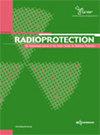核或辐射紧急情况的医疗准备和响应:沙特阿拉伯卫生部选定医院的评估研究
IF 1.8
4区 医学
Q4 ENVIRONMENTAL SCIENCES
引用次数: 0
摘要
这项研究旨在评估和改进沙特阿拉伯选定医院应对核和辐射紧急情况的准备工作。一个专家小组制定并发布了辐射应急准则,在全国范围内选择了21家转诊医院,提供了技术和后勤支持,评估了准备工作,并提出了改进建议。开展了四个基本标准(早期发现事故、医疗反应小组的责任、设备和用品的可用性和可及性,以及关于执行应急计划的培训)和50个次级标准的评价进程,并对医院的准备情况进行了评估。初步评估显示,大多数医院的准备程度中等,平均得分为67.5%。干预措施通过培训研讨会、指导方针、检查清单和反馈来实施。随访评估结果显示,干预措施对提高各医院的防范能力非常有效,平均总分为99.1%。所有医院在四个方面均达到80%以上的基准,其中14家医院得分为100%,其余7家医院需要进一步的技术支持。研究的结论是,干预措施成功地改善了卫生设施应对核和辐射紧急情况的准备工作,并建议继续进行监测和评价,以保持高水平的准备工作。本文章由计算机程序翻译,如有差异,请以英文原文为准。
Medical Preparedness and Response for a Nuclear or Radiological Emergency: An Assessment Study in Selected Hospitals of The Ministry of Health Across Saudi Arabia
This study aimed to assess and improve the preparedness of selected hospitals in Saudi Arabia for nuclear and radiological emergencies. A team of experts developed and issued guidelines for radiation emergency response, selected 21 referral hospitals across the country, provided technical and logistical support, evaluated preparedness and provided recommendations for improvement. An evaluation process with four essential criteria (early detection of accidents, medical response team responsibilities, availability and accessibility of equipment and supplies, and training on the implementation of the emergency plan) and 50 sub-criteria was conducted, and hospitals' preparedness was assessed. The initial assessment showed that most hospitals had a moderate level of preparedness, with an average overall score of 67.5%. Interventions were implemented through training workshops, guidelines, checklists, and feedback. The follow-up assessment showed that the intervention was highly effective in enhancing the preparedness of all hospitals, with an average overall score of 99.1%. All hospitals achieved the benchmark of 80% or higher in all four aspects, with 14 hospitals scoring 100% and the remaining seven hospitals requiring further technical support. The study concluded that the intervention was successful in improving the preparedness of health facilities for nuclear and radiological emergencies and recommended continuous monitoring and evaluation to maintain the high level of readiness.
求助全文
通过发布文献求助,成功后即可免费获取论文全文。
去求助
来源期刊

Radioprotection
ENVIRONMENTAL SCIENCES-PUBLIC, ENVIRONMENTAL & OCCUPATIONAL HEALTH
CiteScore
3.30
自引率
54.50%
发文量
35
审稿时长
>12 weeks
期刊介绍:
Radioprotection publishes articles on all aspects of radiological protection, including non-ionising as well as ionising radiations. Fields of interest range from research, development and theory to operational matters, education and training. The very wide spectrum of its topics includes (theoretical and practical aspects): dosimetry, instrument development, specialized measuring techniques, epidemiology, biological effects (in vivo and in vitro) and risk and environmental impact assessments.
 求助内容:
求助内容: 应助结果提醒方式:
应助结果提醒方式:


